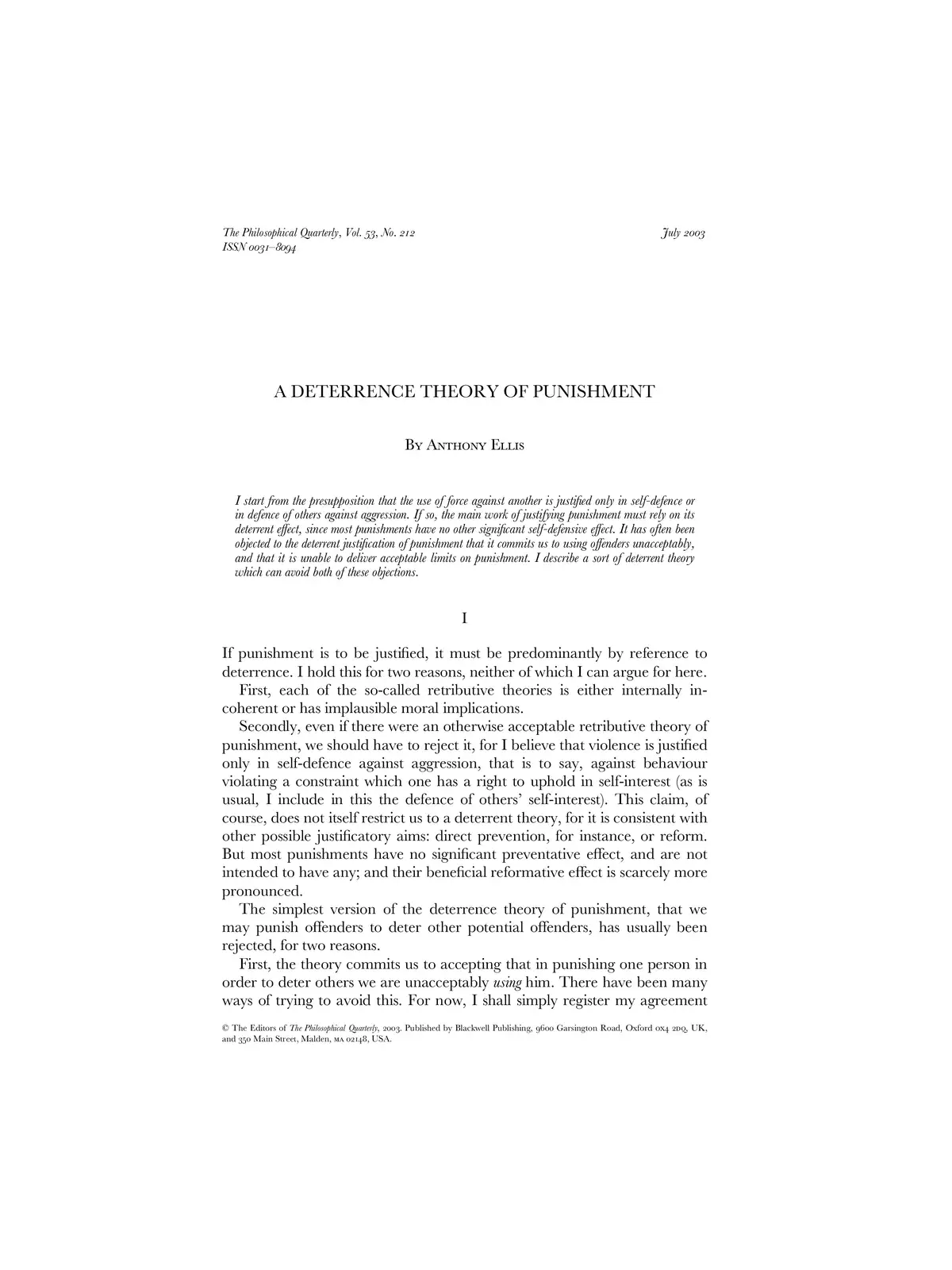A Deterrence Theory of Punishment - Summary
According to the deterrence theory of punishment, individuals respect the law primarily because they fear the consequences of being caught if they break it. Understanding deterrence theory is essential, as it shapes law enforcement practices and influences how society views crime and punishment.
Understanding Deterrence Theory
Deterrence theory posits that people refrain from committing crimes not just due to fear of punishment but also due to a strong moral compass. It suggests that the likelihood of committing a crime decreases significantly when the consequences are immediate, certain, and severe. For instance, the theory implies that if there’s a low chance of being caught, or if the punishment is merely a warning, the temptation to steal a candy bar increases.
A Deterrence Theory of Punishment – Summary
According to deterrence theory, the foundational belief is that fear of punishment is a powerful deterrent against criminal acts. Research shows that potential offenders are more likely to think twice before engaging in illegal activities when they are aware of strict penalties.
Three Key Assumptions of Deterrence Theory
- Individuals understand the potential consequences of committing a crime.
- They have significant control over their actions.
- Decisions are made based on rational thought rather than emotions.
However, these assumptions do not hold true for many crimes. Still, the deterrence theory does hold some relevance, especially concerning issues like drunk driving. It suggests that stricter enforcement and penalties may reduce this dangerous behaviour.
For more in-depth insights, feel free to download the PDF containing detailed information about this important theory of punishment. You can easily download it using the link provided below! 😊
